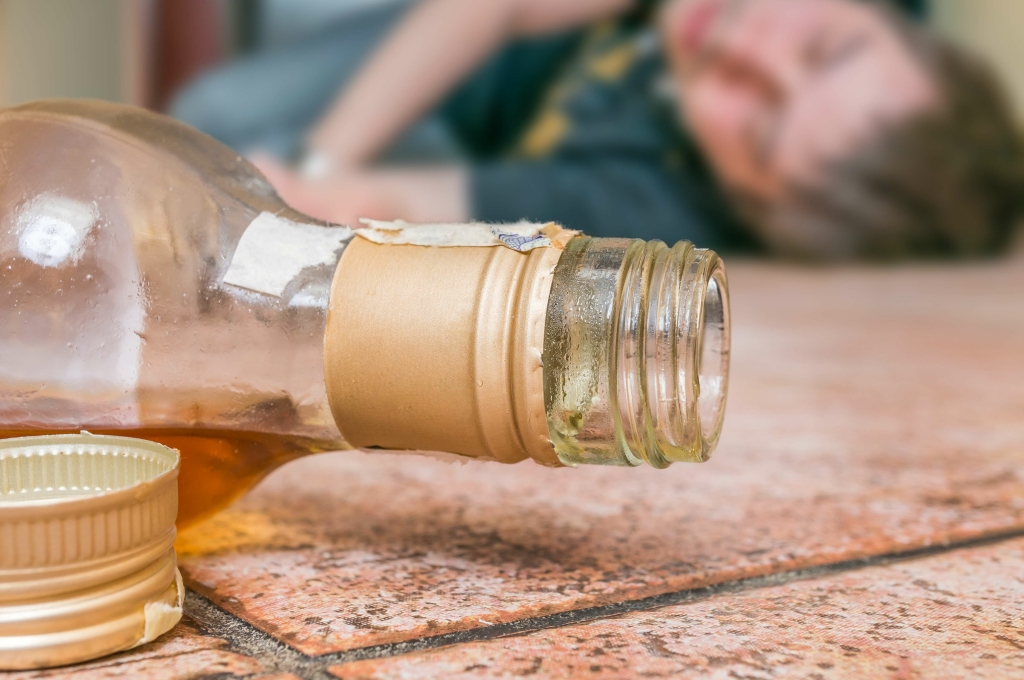Oxidation of alcohol via the MEOS produces less ATP than oxidation via alcohol dehydrogenase, using the energy from alcohol intake primarily to enhance heat production [37, 54]. The extent to which wasted energy from regular alcohol consumption contributes to weight https://accountingcoaching.online/how-long-can-you-live-with-cirrhosis/ gain prevention is unclear. It’s also common for excessive drinking to damage your gastrointestinal tract, leading to poor absorption of nutrients and malnutrition. As your gut heals, you may gain weight from increased appetite and increased food absorption.
- There are several direct and indirect ways that heavy drinking can make you gain weight or, more specifically, gain body fat.
- The survey also highlighted that the day after passing their tipping point, 50% of people cancel planned physical activity, often replaced with sedentary activities such as watching TV or staying in bed.
- To keep the calorie count as low as possible, avoid mixers and added sugar when possible.
- It’s essential to be aware of both the direct and indirect effects of alcohol on your weight.
- This is water loss, not fat loss and the weight is quickly regained when you re-hydrate.
- Alcohol contains almost as many calories per ounce as pure fat, meaning that even just a few drinks can significantly increase your calorie intake for the day.
However, the results of the various cross-sectional and longitudinal studies examined in this review do not unequivocally support such a hypothesis. Finally, there is also evidence to suggest that traits that predispose individuals to binge drinking may also predispose to binge eating [66]. If you are trying to lose weight, you can boost your efforts by cutting back on alcoholic drinks. Some mixed drinks can contain as many calories as a meal, but without the nutrients.
Alcohol affects digestion and nutrient uptake
Dry wines tend to have less sugar and therefore fewer calories than sweet wines, while sparkling wines are the lowest in calories. Here are some questions people often ask about alcohol bloating. Excess alcohol can also turn to fat in your liver and can raise the amount of fat in your blood, says Sonya Angelone, R.D., a spokeswoman for the Academy of Nutrition and Dietetics.
- When you are done, have a non-alcoholic drink, such as water or low-calorie soda, before having more alcohol.
- What surprised researchers, however, was that there was no link between obesity and a family history of alcoholism in the first survey.
- Alcohol causes bloating by irritating the lining of your intestines, causing excessive gas and swelling in the abdomen.
- Alcohol increases the risk of gastritis by raising acid levels in the stomach.
- However, drinking too much wine appears to outweigh any possible benefits and contributes excess calories in the process (11).
- Some people have said that drinking alcohol increases appetite, and so can lead to overeating and weight gain.
As a result, people who drink heavily may have high cortisol levels. The Nurses’ Health Studies are two of the largest cohort studies, with more 230,000 participants and investigates chronic disease risks for women. The Health Professional Follow-up study involves more than 50,000 male health professionals and investigates the relationship between diet and health outcomes. Physical responses to excessive alcohol use can prompt cravings for fat and sugar, which further interfere with weight loss. People should also avoid drinking on an empty stomach because this can intensify the effects of alcohol and bring them on more quickly. Eating while drinking alcohol slows absorption and helps maintain impulse control.
Alcohol spikes cortisol levels in your body.
Second Nature uses science to help you make healthy choices, ensuring they stick in the long run. Join the 150,000 people on a Second Nature journey A Timeline for the Restoration of Cognitive Abilities after Quitting Alcohol today by taking our quiz. We use your quiz answers to tailor our advice and support on the programme, to ensure you lose weight and keep it off.

Overall, the available experimental evidence reviewed in this article suggests that moderate intake of alcohol does not lead to weight gain. The systematic review by Bendsen et al. [3•] suggests that this trend is less likely in experimental studies examining beer consumption exclusively. A modest increase in weight of one kilogram over a 10 week period seems insignificant but over five years this could result in up to 26 kg of weight gain if no compensation takes place. To our knowledge, there does not appear to be any experimental evidence specifically testing the effects of heavy/binge drinking, or of drinking spirits or a combination of alcohol sources on weight gain/obesity.
Does alcohol cause belly fat?
Alcoholic beverages are often high in empty calories, with about seven per gram. As a result, people with diabetes may need to practice https://trading-market.org/4-ways-to-make-amends-in-recovery/ caution with alcohol. Drinking alcohol with diabetes medicine, especially on an empty stomach, may cause low blood sugar.
- Still, you may have heard that red wine, in particular, may offer more benefits than other alcohols.
- While the calories in one glass of wine don’t seem like a lot, a few glasses pack over 300 calories and a bottle has upwards of 600 calories.
- If you are someone who engages in drinking and want to lose weight, the dietitians will help you find a way to incorporate drinking into your lifestyle without sabotaging weight loss goals.
- When selecting an alcoholic beverage, opt for a lower calorie option cocktail, glass of red wine, light beer, and avoid drinks made with sugary mixes.
- Health experts recommend that anyone who drinks should do so in moderation.
- All kinds of alcohol — beer, wine, whiskey, you name it — are relatively calorie-dense, topping out at about 7 calories per gram.